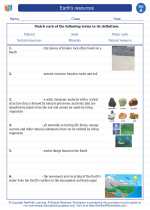Rivers: An Explanation
A river is a large natural stream of water that flows towards another river, ocean, lake or another body of water. Rivers are a vital part of the Earth's hydrological cycle, which is the continuous movement of water on, above and below the surface of the Earth. They play a crucial role in shaping the landscape and providing habitats for a wide variety of plants and animals.
Formation of Rivers
Rivers are formed from various sources such as melting snow, rainfall, springs or even underground sources. These sources feed into small streams, which then combine to form larger rivers. The flow of the river is primarily determined by the gradient or slope of the land it flows through.
Key Features of Rivers
- Source: The starting point of a river, often located in high-altitude areas.
- Mouth: The endpoint of a river where it flows into another body of water, such as an ocean or lake.
- Tributaries: Smaller rivers or streams that flow into a larger river.
- Meanders: Curves or bends in a river's path, caused by erosion and deposition.
- Delta: A landform created by the deposition of sediment at the mouth of a river, often shaped like a triangle.
- Waterfall: A steep descent of water over a rocky ledge, creating a dramatic feature in the river's course.
Importance of Rivers
Rivers have immense significance for both the environment and human civilization. They provide freshwater for drinking, irrigation, and industrial use. They also support diverse ecosystems and serve as transportation routes. Moreover, rivers are a source of recreation and tourism, attracting people for activities such as fishing, boating, and wildlife observation.
Study Guide: Exploring Rivers
Key Concepts
- What is a river and how is it formed?
- Identify the main features of a river and explain their significance.
- Discuss the importance of rivers for the environment and human communities.
Activities
- Draw a diagram illustrating the journey of a river from its source to its mouth.
- Research and present a case study on a famous river, highlighting its cultural, economic, and ecological importance.
- Visit a local river or stream to observe its characteristics and the surrounding ecosystem.
Further Reading
Explore books, documentaries, or online resources about rivers, their ecology, and the impact of human activities on river systems.
By understanding and appreciating the role of rivers, we can contribute to their conservation and sustainable management for future generations.
[Rivers] Related Worksheets and Study Guides:
.◂Science Worksheets and Study Guides First Grade. Earth's resources
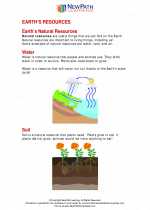
 Worksheet/Answer key
Worksheet/Answer key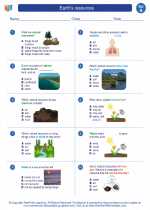
 Worksheet/Answer key
Worksheet/Answer key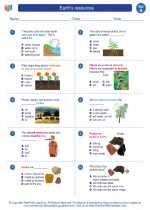
 Worksheet/Answer key
Worksheet/Answer key
 Vocabulary/Answer key
Vocabulary/Answer key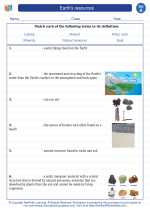
 Vocabulary/Answer key
Vocabulary/Answer key